The politics of fear and anti-immigration sentiment
IT WOULD be easy to dismiss Pauline Hanson’s supporters as racists or backwater hicks. But doing that would ignore the real problem.
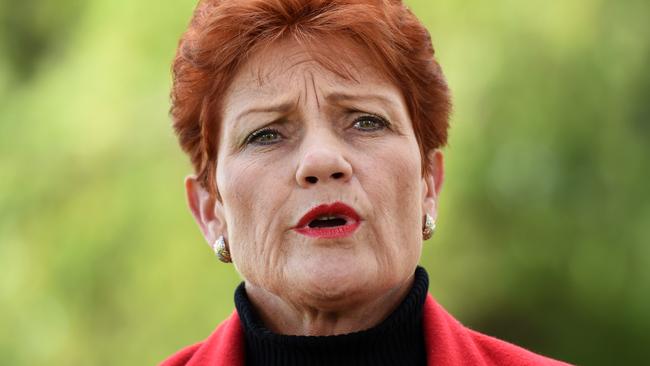
FOR many Australians, the return of Pauline Hanson to Parliament is a frightening portent that taints the idea of Australia as the land of the laid-back with a more sinister edge.
The kind of sinister edge that Australians have associated with the controversial views of Donald Trump and the fallout over the Brexit vote.
There’s no denying Hanson has a lot of support among certain segments of the population, at least 185,000 Australians have voted for her and her party in Queensland so far. Hanson’s policy platform focused on anti-immigration sentiment including calls for a Royal Commission into Islam and zero net migration.
For many months now, commentators in the US and Europe have been bandying about a word to describe this political phenomena: Nativism.
It’s not a matter of racism (you’ll often hear people say you can’t be racist against Islam because it’s not a race). This form of discrimination isn’t along biologically racial or ethnic lines, it’s about more intangible concepts such as “culture” and “values”. Nativist ideology is marked by a more protectionist, isolationist world view, a sense of “looking after your backyard” first and prioritising those who are “already here”.
While the situation in Australia isn’t identical to those in the US, UK and continental Europe, the common thread between them is a matter of economics, inequality and a slide in the standard of living.
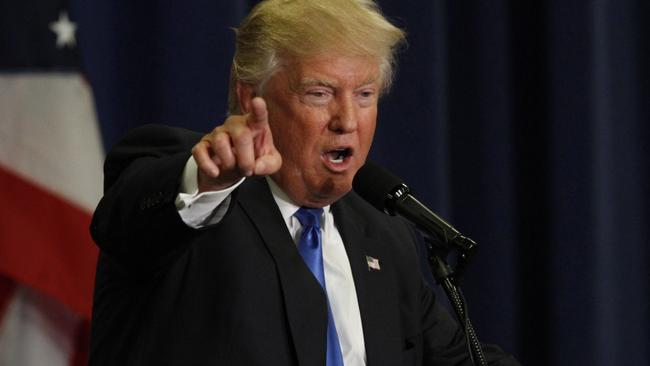
It would be easy to dismiss Hanson’s supporters as racists or backwater hicks. But doing that would be to ignore the underlying problem that pervades Australia and other western democracies that are contending with right-wing personalities tapping into the resentment of foreigners for political gain.
WHAT ARE WE SO AFRAID OF?
Hanson’s appeal is primarily among voters that are white, male, working class and skews older, particularly those from regional and rural areas. Those demographics also happen to be the ones feeling the most vulnerable in the way the economic fruit has fallen in a globalised market.
In the Scanlon Foundation’s Mapping Social Cohesion report last year, it consistently found more negative attitudes towards immigration and multiculturalism among older Australians and from those outside of capital cities.
Mario Peucker, a postdoctoral research fellow at Victoria University’s Centre for Cultural Diversity and Wellbeing, told news.com.au: “Australia, UK and the US have their individual circumstances but there is an underlying root cause and that is there are economic shifts and social shifts that some segments of society aren’t happy with. Some people feel left behind.
“A relatively large segment of the society, although still a minority, feels like they’re kind of stuck in their socio-economic mobility, they don’t have hope that their kids will be in a better socio-economic position. They might have a job but they feel like they might lose it. They probably think they might lose it to some overseas investor who might bring in their own overseas workers.
“So there’s a lot of fear about the future and this fear drives some kind of self-protection and a feeling that it ‘used to be better’ and wanting political leaders to recognise them and their situation and do something about it.”
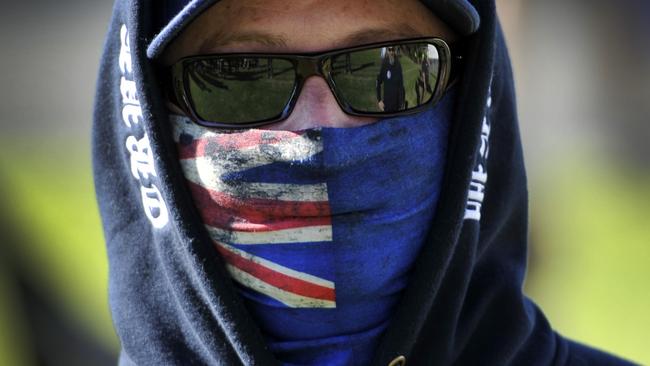
Social researcher Neer Korn agreed that there is more of an inward-looking mentality among Australians. “People are far more concerned about local issues. They say ‘let’s worry about the homeless and poor people’. You see this with the resurgence of protectionism and the desire to not sell Australian land and assets to foreign buyers.
“We spent the last three decades breaking things down and the walls seem to be coming back up. A good example of where Australians are really conservative is where they support cutting foreign aid. They don’t look at it in terms of diplomacy and strategic giving.
“We don’t know where the global economy is heading and we are really fearful of housing crises, jobs and cost of living. Foreign buyers and the manufacturing downturn — there’s a sense we’re losing to the global economy.
“It’s that fear and uncertainty of the world. People think that even though we survived the GFC, we may not survive the next one. I guess what happens is the more the world feels out of control, the more we tend to put our walls.”
WHY NOW?
Dr Peucker said while it may seem like anti-immigration or anti-multiculturalism rhetoric seems more prevalent in the public sphere at the moment, the level of cultural discrimination in Australia has remained consistent. The difference now is that sentiment has found a public voice.
“The mainstream has refrained from hate rhetoric; the danger is in the subtle messages,” he said. “Not blaming mainstream politicians per se but there have been very public statements in Australia, particularly over the past year, that has sent the message to certain segments of society that Australia is not the way it used to be and that it used to be ‘better’ and that there are developments that threaten the image of ‘old Australian society’.
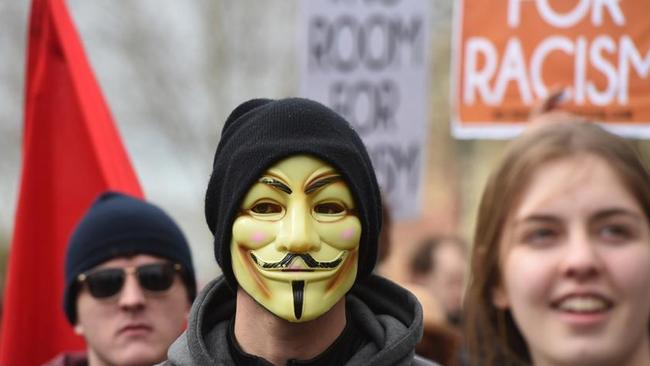
“The best example is probably from Tony Abbott after losing his prime ministership when he spoke about Islam, when he said Islam has an inherent problem and it has to change. This message can be seen as basically legimising hard-core and fringe groups that argue along the same lines. It pushes the mainstream political discourse towards the right and shifts the social norms of what can be expressed about Islam.
“In principle the view Hanson expresses on Islam is not so different. She says she has no problems with Muslims but with Islam and that’s not so dissimilar to what some mainstream politicians, like Queensland’s Liberals Nationals Party MP George Christensen, say.”
Dr Peucker these previously largely dormant attitudes have now found that voice at the ballot box, that they have been politicised. “Hanson combines these attitudes with anti-establishment politics and her tour was called ‘Fed Up’. That’s very Trump-esque. She managed to mobilise fears that have been there anywhere and offered an alternative voice from the establishment and that’s why she got the vote.”
Mr Korn said he doesn’t get the sense that people voted for Hanson because they’re racists or because of her anti-Islam policies.
“It’s not because of a sense of hatred or discrimination that they voted for her but more because of her looking inward into ‘Australianisms’, Australian culture and seeking to allay those fears. And most of her votes came from people who are the most vulnerable and fearful, as opposed to those in larger cities.
“I don’t think people support her because of racist views, it’s because she’s outspoken and speaks her mind and doesn’t seem to be a main-party politician. She appears to her supporters as someone who is concerned about her constituents and they feel like she’s speaking to them. It’s for other reasons or they’re seeking to protect their economic lives. What they’re doing is buying into the whole package that she’s selling but it’s not because of racism.
“There is a tiny minority of loud voices but they in no means reflect a sense of how Australians see themselves.”
ARE WE RACIST?
Mr Korn said he does not see an underlying racist sentiment in most Australians. “It’s the first point of pride in Australia,” he said. “Most people are proud of the fact we do all seem to get along and we don’t have civil strife. What they talk about is have people been vetted properly and have they been integrated into Australian society?
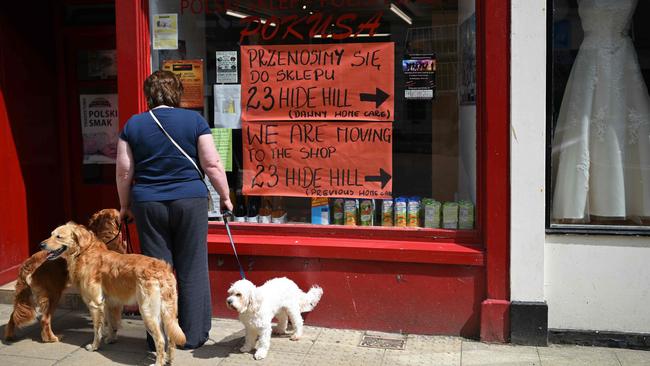
“When they talk about assimilation, all they’re really talking about is the acceptance of Australian values — let and let live.”
He said the fact that most Australians see Trump as a misogynist and racist gives you an indication of where people sit.
At the heart of nativism is this idea of “values”. The ideology of what’s playing out now isn’t so different from history when Catholic immigrants were discriminated against by Protestant settlers.
In the Mapping Social Cohesion report, a quarter of Australians strongly agreed with the proposition that immigrants “should change their behaviour to be more like Australians”.
Dr Peucker said: “You can be quite open to diversity but growing numbers of Anglo-Saxon Australians want to define how far this diversity can go, how much diversity they’ll accept.”
“The danger comes from how you define ‘Australian values’. If you define it on some blurry definition of Christianity, then you end up being exclusivist,” he said. “You end up excluding certain segments of society and that’s not a side effect, that’s often your actual purpose in defining values like this.
“You have 15 to 20 per cent of Australians who are generally against diversity. They prefer an old Australia with Anglo-Saxon Christians, and some or many of them seem feel a sense of entitlement and even superiority, this is not biological racism but it’s a form cultural racism. They feel like they’re more entitled to define what is morally acceptable and what’s not.”
Dr Peucker said people like Hanson and Trump are more likely to be short-term influences because they tend to flounder in government, that they’re not good policy makers, just loud in opposition. But the phenomenon is here to stay unless you fundamentally change something in terms of political representation, party politics or the political climate.
He said he’s worried about it becoming more radical on the streets, that we might see more violent clashes.
Certainly, in the wake of Brexit, there’s been a significant rise in the reports of hate crimes in the UK, a feeling that the messages that were put out there has emboldened some people to publicly express what they’ve been thinking in private.
But Mr Korn has a more optimistic view on where Australia might be headed. He pointed out that every time there is a racist incident on a train or in public, it spreads on social media and Australians are outraged and ashamed by it.
“That’s not how we see ourselves.”



